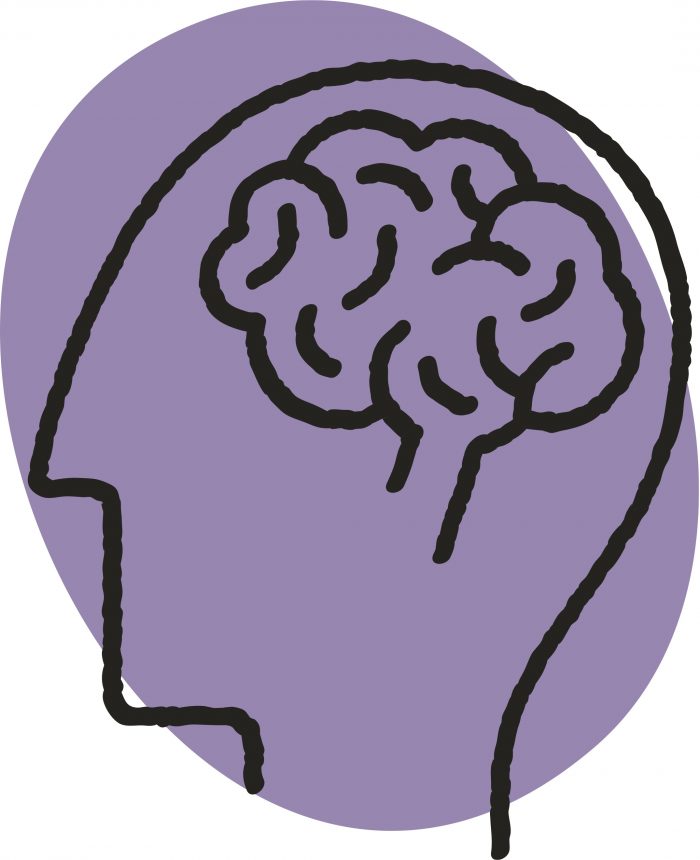By David Dunaief, M.D.

Are 20-somethings more quick-witted than people over 60? You might be surprised by what the research actually tells us. Fear of — and assumptions about —cognitive decline as we age are common. They’re so common that entire industries focus on selling us supplements and games to keep us sharp. Ageism is also a growing concern in society and in the workplace.
What do we really know about the brain? We know that certain drugs, head injuries and lifestyle choices can have negative effects. Numerous neurological, infectious, and rheumatologic disorders and diseases can also have long-term brain effects. These include autoimmune disorders, psychiatric mood disorders, diabetes and heart disease.
Of course, addressing the underlying medical issue is critical. Fortunately, several studies also suggest that we may be able to help our brains function more effectively with rather simple lifestyle changes: sleep, exercise and possibly omega-3s.
What is brain clutter?
Let’s return to our question comparing those in their 20s with those over 60.
German researchers put this stereotype to the test. They found that educated older people tend to have a larger mental database of words and phrases to draw upon when responding to a question (1). When this was factored into their simulation analysis, the difference in terms of age-related cognitive decline became negligible.
The more you know, the harder it becomes to come up with a simple answer to something.
What if we could reboot our brains, just like we do with a computer? This may be possible through sleep, exercise and omega-3s.
How does sleep help with brain functioning?
Researchers have identified a couple of specific values we receive from sleep: one involves clearing the mind, and another involves productivity.
For the former, a study done in mice shows that sleep may help the brain remove waste, such as beta-amyloid plaques (2). When we have excessive plaque buildup in the brain, it may be a sign of Alzheimer’s. When mice were sleeping, the interstitial space (the space between brain structures) increased by as much as 60 percent.
This allowed the lymphatic system, with its cerebrospinal fluid, to clear out plaques, toxins and other waste that had developed during waking hours. With the enlargement of the interstitial space during sleep, waste removal was quicker and more thorough, because cerebrospinal fluid could reach much farther. A similar effect was seen when the mice were anesthetized.
In an Australian study, results showed that sleep deprivation may have contributed to an almost one percent decline in gross domestic product (3). Why? When people don’t get enough sleep, they are not as productive. They tend to be more irritable, and their concentration may be affected. While we may be able to turn on and off sleepiness on short-term basis, we can’t do this continually.
In one small study, sleep deprivation was compared to alcohol impairment (4). It found that subjects’ response time and accuracy with assigned tasks after 17-19 hours without sleep were comparable or worse than their performance when they had a blood-alcohol concentration (BAC) of .05 percent. With more than 19 hours of sleeplessness, performance equaled .1 percent BAC.
Earlier studies showing similar results led my wife to insist on picking me up, rather than letting me drive home, after 24-hour call hospital assignments during my residency.
Does lack of exercise rewire your brain?
One study with rats suggests that a lack of exercise can cause unwanted new brain connections. Rats that were not allowed to exercise were found to have rewired neurons around their medulla, the part of the brain involved in breathing and other involuntary activities. This included more sympathetic (excitatory) stimulus that could lead to increased risk of heart disease (5).
Among the rats allowed to exercise regularly, there was no unusual wiring, and sympathetic stimuli remained constant. This may imply that being sedentary has negative effects on both the brain and the heart. We need human studies to confirm this impact.
Do omega-3 fatty acids improve brain volume?
The hippocampus is involved in memory and cognitive function. In the Women’s Health Initiative Memory Study of Magnetic Resonance Imaging Study, results showed that postmenopausal women who were in the highest quartile of measured omega-3 fatty acids had significantly greater brain volume and hippocampal volume than those in the lowest quartile (6).
Specifically, the researchers looked at the levels of eicosapentaenoic acid (EPA) and docosahexaenoic acid (DHA) in red blood cell membranes. The source of the omega-3 fatty acids could have been from either fish or supplementation.
It’s never too late to improve brain function. Although we have a lot to learn, we know that there are relatively simple ways we can positively influence it.
References:
(1) Top Cogn Sci. 2014 Jan.;6:5-42. (2) Science. 2013 Oct. 18;342:373-377. (3) Sleep. 2006 Mar.;29:299-305. (4) Occup Environ Med. 2000 Oct;57(10):649-55. (5) J Comp Neurol. 2014 Feb. 15;522:499-513. (6) Neurology. 2014;82:435-442.
Dr. David Dunaief is a speaker, author and local lifestyle medicine physician focusing on the integration of medicine, nutrition, fitness and stress management. For further information, visit www.medicalcompassmd.com or consult your personal physician.






